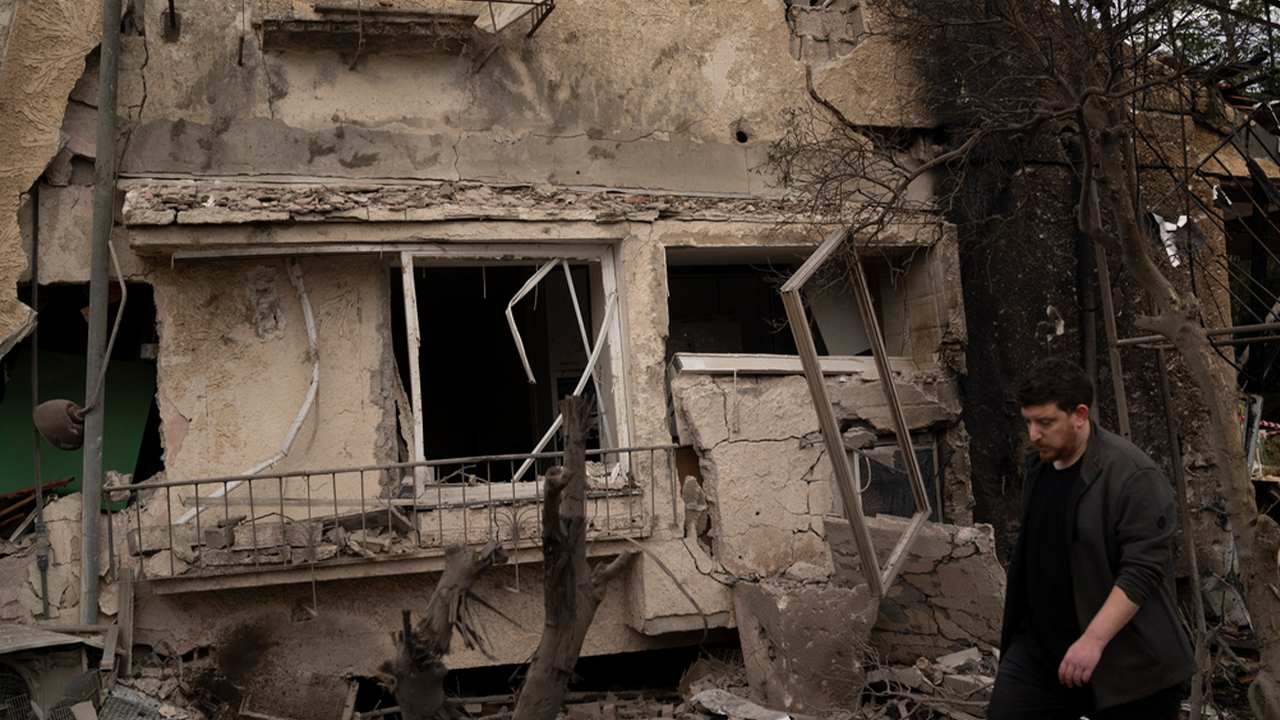A rushed wedding, strangers uniting, and a rabbi's journey reveal the power of faith and resilience across divides.
By HAYIM LEITER NOVEMBER 25, 2024 01:43 The writer conducts a wedding ceremony.
(photo credit: Effie Dor)
The writer conducts a wedding ceremony.
(photo credit: Effie Dor)
As I drove toward the North, everything was still up in the air. It was deeply unsettling. I’m somewhat of an A-type personality, so I like to have things organized well in advance. But when you get a call for a wedding the day before the event, you are forced to go with the flow.
This was not your everyday nuptial. The bride and groom’s daughter was my contact person. Due to the late hour, I was unsure we could work out all the details in time. The plan was to hold the ceremony outside a restaurant just before sunset. The location was on the water, so it was certain to be a beautiful affair. “But why are you only getting in touch with me now?” I inquired.
The couple had immigrated to Israel many years prior from the former Soviet Union. They had been civilly married in Russia when ritual practice was outlawed. Now, in their mid-seventies, they desired a halachic wedding. How could I say no to that? But something still wasn’t adding up. Why was it so rushed?
I spent the wedding day contacting everyone I knew to see if they could join me. The family wasn’t religious, like many of the couples I work with. However, according to Jewish law, two observant men must sign the documentation. I am normally one of those two, but I had trouble finding a second.
A friend of mine had a contact near the wedding location. This person assured us he knew someone who could serve as the second witness and promptly gave me his contact details. Things were finally starting to look up. But when I called and messaged this individual, I got no response.
A wedding in the shadows of war
As I began the trip north, I was still the only kosher witness. In truth, I’ve driven this route plenty of times. My in-laws have an apartment close to the event site, so it should have felt like normal territory. But I was on edge the entire drive. At each stoplight, I checked my phone for a response, but none came.
Then I saw something I’d never seen before. There was a yellow car dangling in the air just off the side of the road. But the car wasn’t just yellow. There was a large red handprint on the side. I wondered what it was. And then a few kilometers later, there was another and then another. That’s when it dawned on me. These were cars from October 7. They’d been brought here and painted yellow to remind us of the hostages.
When I arrived at the location, some of the family members were already congregating outside the restaurant. I didn’t know what I was going to do, but then I saw them. A young religious couple was standing near the makeshift chuppah (wedding canopy), admiring the view. Even though the weddings I preside over do not take long, asking him felt like a huge imposition. But still, I had to try.
I approached the man and asked him if he could spare a half-hour to serve as the witness for the wedding. Naturally, he responded with some hesitation, so I had to pull out all the stops.
The reason the wedding was so rushed was because the groom had recently been diagnosed with a serious illness. He wanted to fulfill his bride’s dream of a traditional marriage while he still had the strength to do so. And what better time to do it than their golden anniversary? Upon hearing this information, the man agreed to help in any way he could.
Stay updated with the latest news!
Subscribe to The Jerusalem Post Newsletter
So, this passerby and I worked together to perform all the ritual tasks required for the union. I did my best to keep things moving along so as not to overburden the couple, who were probably on their date night.As the sun sank below the horizon and the chuppah ceremony came to a close, I approached these strangers to thank them and apologize for the inconvenience. “Not at all,” they replied. “It’s clear God meant for us to be here so we could help you.”
What’s amazing about this tiny country of ours is that there are still decent people willing to help in a time of need. But it’s more than that. All of us who worked together to make this wedding come to fruition did so across religious lines. The family was secular; I identify as Modern Orthodox; the couple would most likely identify as haredi(ultra-Orthodox).
If we’ve learned anything from October 7, it’s how much we need each other. I hope more of us can put our differences aside to work towards a common goal.
The writer is a rabbi, a wedding officiant, and a mohel who performs britot (ritual circumcisions) and conversions in Israel and worldwide. Based in Efrat, he is the founder of Magen HaBrit, an organization protecting the practice of brit milah and the children who undergo it.

 By The Jerusalem Post (World News) | Created at 2024-11-25 00:20:06 | Updated at 2024-11-25 02:55:29
3 hours ago
By The Jerusalem Post (World News) | Created at 2024-11-25 00:20:06 | Updated at 2024-11-25 02:55:29
3 hours ago








